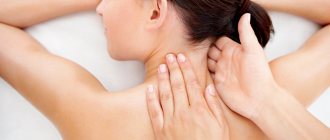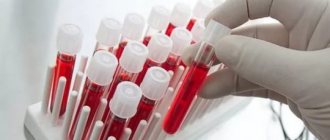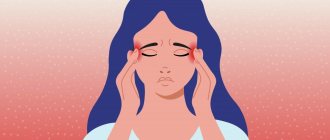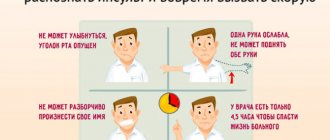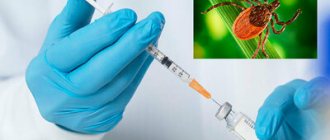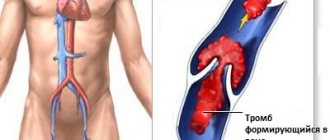We live in a constant abyss of worries: heaps at work, bills for housing and communal services, an atrocious boss and early rises. All this fuss affects the human nervous system and causes headaches. However, not only a busy schedule can cause its appearance; there are many other explanations for this illness.
It is very rare to meet a person who has not experienced a headache. This complaint is one of the most common, according to doctors. And more than 13% of the population of our planet suffers from chronic headaches.
What if your head hurts in your temples?
Temporal headache is the most common type of headache.
Experts attribute the following to the primary reasons:
- neuralgia
- cluster pain
- overvoltage
- migraine
Secondary causes include:
- cerebral vascular damage
- taking medications
- head or neck injury
- non-vascular intracranial lesions
- HIV infection and AIDS
- hemostasis disorder
- pathology of the skull
- psychological illnesses
What to do if you have a headache in your temples? – If this happens for the first time, then you need to take an analgesic. If the pain persists after taking painkillers, you should consult a specialist. If you experience intense and frequently recurring pain in your temples, it is better to consult a therapist or neurologist. If the pain is a consequence of an injury, then you should make an appointment with a surgeon or traumatologist.
MRI at the MedSeven clinic
You can undergo a high-level examination of the brain and other body systems at the MedSeven diagnostic clinic at any time of the day. We guarantee maximum accuracy of results thanks to:
- highly qualified doctors performing MRI;
- using a powerful Philips Intera 1.5 Tesla tomograph;
- responsible approach to the implementation of each procedure.
Surgeons in Israel, Germany, and the USA are guided by images taken in our diagnostic center when prescribing and performing operations. You can make an appointment either by phone or online on the website of our medical center. We work 24 hours a day, seven days a week. After undergoing an MRI, you will receive a conclusion within 15-20 minutes, as well as the opportunity to consult a doctor with a 50% discount.
Get an MRI of the brain in Moscow >>>
The service includes:
- Study
- Disk with image
- Film is paid separately
- Transcription by a radiologist doctor
What if you have a headache in the back of your head?
Usually such a severe headache chills a person and prevents him from functioning normally. This is a very serious inflammation that you should not experience on your own without medical help. Usually the back of the head hurts due to pathologies. It is better not to try to relieve the disease with analgesics, but to immediately consult a doctor.
Headache in the back of the head can be a signal of diseases:
- nervous system
- vessels
- spine.
Causes of headaches in the back of the head:
- Tension headache. Usually discomfort is associated with tension in the neck muscles. They compress the arteries and nerves that carry blood and impulses to the brain, which is accompanied by a pain reaction in the back of the neck and in the back of the head. In some cases, the provoking factor is emotional tension and stress, which leads to spasm of the neck muscles.
- Migraine is an acute and painful attack of unilateral and occipital headache. An attack can last for several hours or several days. The cause of the disease can be physical activity, overexertion and changes in weather conditions. Most often, women suffer from migraines, and the average age of those affected is from 25 to 35 years.
- Osteochondrosis of the cervical spine is a chronic progressive disease that thins the cartilage in the neck. It can occur after a neck injury, vertebral displacement, sedentary lifestyle or excess weight. The disease can also cause pain in the back of the head.
- Sudden pressure surges.
- Occipital neuralgia provokes an acute headache. Discomfort begins in the occipital region, but can spread to the frontal and temporal lobes. This condition can occur after a neck injury, arthritis, or muscle spasms.
- Use of medications. In self-medication, people “prescribe” themselves medications to treat migraines. This initiative provokes a medicinal headache. It occurs as a reaction of the body to frequent intake of active substances of analgesics.
When should you consult a doctor?
Doctors at the Clinical Brain Institute recommend undergoing an examination if your headaches are too intense or occur frequently. If they go away on their own during the day, there is no cause for concern. However, some symptoms should promptly consult a doctor. These include:
- memory losses;
- exacerbation of reaction to light, auditory stimuli;
- impaired coordination of movements;
- increase in body temperature to critical levels;
- dizziness, fainting.
You can also take care of your own health at home. Regardless of age and type of activity, it is recommended to periodically measure blood pressure using a tonometer. Scheduled examinations are also a prerequisite. They include examination by a general practitioner, ophthalmologist, otolaryngologist, and electrocardiography.
Why does my head hurt and feel nauseous?
Among the causes of nausea and headaches are infectious and non-communicable diseases, pathologies of the nervous and cardiovascular systems. The disease manifests itself due to intoxication and insufficient blood supply to the brain. Typically these symptoms indicate severe fatigue and impairment. This type of headache can also occur during pregnancy.
Causes:
- Overwork and lack of sleep. The body does not have time to recover and rest due to lack of sleep, which leads to negative health.
- Viral diseases that affect body systems and organs. Additional symptoms in such cases will be fever, muscle and joint aches.
- Viral diseases can cause headaches and nausea. For example, flu or sore throat, as well as seasonal infection, can trigger the disease. In this case, experts recommend bed rest and drinking plenty of fluids.
- Lyme disease is an infectious disease caused by a tick bite.
- Pregnancy.
Kinds
Neurologists distinguish the following types of headaches:
- Migraine – caused by a disruption of the vascular system;
- Tension headache - mainly occurs due to excessive tension in the neck, eye muscles, as well as the muscles of the shoulder girdle and scalp aponeurosis, as well as due to chronic stress, depression;
- Chronic paroxysmal hemicrania, cluster headache - can be primary or secondary.
- Headache not associated with damage to brain structures;
- Ambus headache that occurs when taking medications uncontrolled.
There are also headaches after traumatic brain injury, with diseases of the vascular system, and those that occur with intracranial disorders of extravascular origin.
Tensor headaches often occur in women after stress or nervous shock. It goes away in the presence of positive emotions, after drinking soothing herbal teas.
Neurologists do not recommend taking headache pills on your own. Each drug is designed to relieve a specific type of pain and has a number of contraindications. The doctor takes all this into account when prescribing a medicine to a patient.
Make an appointment
Why does my head hurt in the forehead area?
This phenomenon is quite common in all age groups of the population. Such pain can be acute or chronic, occur independently or in combination with other symptoms. Pain in the frontal lobe occurs even in a healthy person, so their one-time occurrence should not be a cause for concern.
If a person constantly has a headache in the frontal lobes, then there are a number of reasons for this:
- Tension headaches can occur even in healthy people. We must remember that rest is an integral part of the life process. This pain may go away after taking analgesics.
- Eye pain may also spread to the forehead area. The pain begins behind the eyes and spreads to the frontal lobe. Its manifestations are similar to tension headaches: they occur against the background of overwork or active mental work, last from several hours to several days, and are easily relieved with over-the-counter analgesics.
- Sinusitis causes sharp pain in the frontal part of the head and nose. Accompanied by impaired nasal breathing, lacrimation and decreased sense of smell.
- Arteritis is considered the rarest cause of headaches. The disease is associated with inflammation of the walls of large arteries. They become dense and visible above the surface of the skin. The main symptom of the disease is acute pain in the forehead.
Why does my head hurt after sleep?
A morning headache brings discomfort throughout the day. Night sleep is the time when, after a hard day, our body restores strength. But from time to time awakening is overshadowed by unpleasant sensations.
The reason for such an uncomfortable awakening may be:
- Uncomfortable sleeping position.
- Incorrectly chosen pillow or mattress. Ignoring this moment leads to morning pain throughout the body, including the head.
- When the condition of blood vessels deteriorates, blood pressure is disturbed, which affects the quality of our sleep. Then feeling unwell becomes frequent.
- Head injuries can also contribute to headaches in the morning. It can occur a week or a month after the injury.
- Sinusitis makes breathing difficult, which causes a headache when waking up.
- Cervical osteochondrosis is a displacement of the spine in the cervical region. With this disease, the supply of oxygen to the brain is disrupted.
Research methods
Headache is a symptom, not a pathology. This symptom is not specific, and for this reason, its presence is difficult to make a correct diagnosis. It is necessary to take into account the accompanying manifestations and perform diagnostics using appropriate equipment to identify the underlying cause of this condition. The following procedures are prescribed for diagnosis:
- Blood pressure measurement.
- MRI of the brain.
- Ultrasound of the vessels of the neck and head.
- Laboratory blood analysis.
- Cardiogram.
- CT scan of the skull and brain.
- Dopplerography.
Does paracetamol help with headaches?
Paracetamol is an affordable and time-tested medicine for various types of pain. The drug alleviates the physical condition and has almost no side effects. The medicine helps adults and children, but requires careful dosage when used.
Paracetamol mainly acts as a pain reliever. The phenacetin derivative inhibits the production in the body of compounds responsible for sensitivity to pain - prostaglandins. At the same time, it affects the thermoregulation centers, reducing high body temperature.
Paracetamol is good for relieving headaches in acute respiratory infections. In other cases, it is worth using another analgesic or seeking medical help. In some cases, paracetamol will only dull the pain, but not solve the problem completely.
Treatment
Conservative therapy
Therapeutic tactics are determined by the cause of pulsation in the temples:
- Cerebral atherosclerosis.
Correction of cholesterol levels is required by prescribing a special diet and lipid-lowering drugs, normalizing body weight, quitting smoking and drinking alcohol. To improve blood supply, metabolic processes in nervous tissue and cognitive abilities, antiplatelet agents, neurometabolites, and nootropics are used. - Arterial hypertension.
As in the previous case, it is necessary to eliminate common risk factors. Patients with symptomatic hypertension require treatment of the underlying pathology. As part of drug therapy, antihypertensive, hypoglycemic and lipid-lowering drugs, beta-blockers, diuretics, and antiplatelet agents are used. - Migraine.
To relieve paroxysms with minor or moderately severe symptoms, simple and combined painkillers and caffeine-containing drugs are prescribed. Sometimes a good effect is observed after a therapeutic blockade. For prolonged and intense attacks, medications from the triptan group are indicated. - VSD.
Methods of non-drug correction of the condition come to the fore: normalization of the regime, provision of regular physical activity, elimination of stress, rational nutrition. Massage, water procedures, reflexology, medicinal electrophoresis are useful. If the results are insufficient, sedative herbal medicines, nootropics, tranquilizers, antidepressants, beta-blockers, and herbal psychostimulants are recommended. - Temporal arteritis.
Glucocorticoids play the main role. The drugs are used for a course of at least a month, followed by a gradual reduction in dosage. The total duration of the course is at least 2 years. In case of acute visual impairment, pulse therapy using high doses of hormones is necessary. If glucocorticoids are ineffective, cytostatics are prescribed. Symptomatic therapy includes vasodilators, anticoagulants, NSAIDs. - Hydrocephalus.
In case of a history of TBI, inflammatory processes, or hemorrhages, therapy for the provoking disease is required. Diuretics are used to reduce hydrocephalus. In other cases, treatment is predominantly surgical.
Surgery
Taking into account the etiology of pulsation in the temporal zone, the following operations can be performed:
- Cerebral atherosclerosis:
endarterectomy, brachiocephalic trunk replacement, creation of extra-intracranial anastomoses. - Symptomatic hypertension:
stenting or balloon dilatation of the renal arteries, surgical removal of pheochromocytomas, surgery on the adrenal glands for hypercortisolism. - Hydrocephalus:
removal of intracranial hematomas, dissection of adhesions in patients with arachnoiditis, excision of abscesses, various options for shunting (external ventricular, lumboperitoneal, ventriculoperitoneal, cystoperitoneal).



